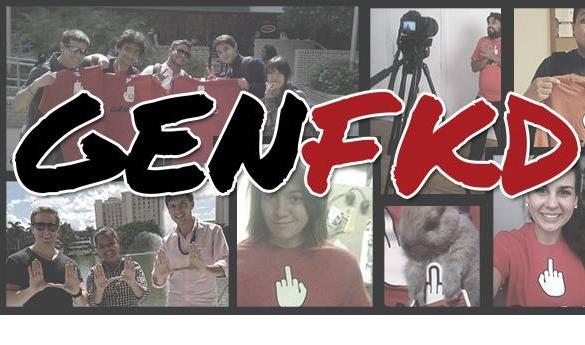Financial Development non-profit comes to Mason
On February 7, David Roth, President of the Economics Society, submitted an application for a new student organization to the Office of Student Involvement. The group would be an on-campus chapter of a nationwide non-profit that seeks to make economics knowledge accessible and easy to understand for college-age students.
The non-partisan non-profit is Generation F.K.D. which stands for “Financial Knowledge Development” and is a thinly veiled reference to a word that describes a state where every option appears to promise little probability for success. According to the website, the target audience for the organization is Generation Y, or millennials, who can strongly relate to this feeling when contemplating job prospects in a struggling economy.
“We want what you want,” the homepage says. “To find a good job, not be broke, and have a chance to win at life.”
Kennedy Patterson, an executive board member of the Economics Society and possible future treasurer of the campus chapter, said the organization is skilled in explaining complex information.
“Gen. FKD explains things in terms we can understand and it makes it interesting for us to understand and stay informed,” Patterson said. “That way, we can make actual informed decisions and hopefully better our own economic situation in life.”
Aspects of the site, such as colloquial language and analogies that employ the use Simpson’s characters, are ways the non-profit tries to make their information extremely relatable.
“It’s written by a bunch of college students who can’t get jobs, so it’s very easily understandable to a bunch of college students who can’t get jobs,” Patterson said.
Roth was contacted by Jesse Jacobs, co-founder and executive director of the non-profit, to discuss starting a campus chapter.
“They were searching for campuses in Virginia and Florida to be the basis, like a springboard, to launch their organization,” Roth said. “It’s a very new organization.”
Jacobs also offered Roth a paid position as a Campus Coordinator, a job Gen. FKD has for student leaders at colleges where there is a presence.
“I’m a student and a lot of my time is dedicated to classes and of course, the Economics Society which I have to put my heart and soul into almost every day,” Roth said. “So even though I may have been interested in it, I don’t know if I would have just organically done it…There’s so much work and stress involved in actually managing an organization. I can do a few, but a financial incentive certainly helps to take on another one.”
His responsibilities as Campus Coordinator include increasing awareness of Gen. FKD and involvement in the non-profit, so Roth decided initiating a chapter was the best way to fulfill those duties.
“It follows from being [Campus Coordinator] that I would want to establish a chapter on campus because that’s going to be the best way to spread the word that we’re an organization and spread all the knowledge and resources we have,” Roth said. “This is a fantastic opportunity for me to help educate people.”
According to Patterson, Gen. FKD thinks lack of knowledge contributes to the employment struggle and said her knowledge of economics has been helpful in understanding the world around her.
“They think people are unemployed because they don’t have these financial skills and don’t really understand what’s going on,” Patterson said. “I understand a lot more policy, both political and economic…I understand a lot more of what’s going on financially from my personal finances to a national scale, and I think that knowledge is very valuable regardless of what degree you’re going to get. Understanding what’s going on and having a good understanding of it, whatever way you decided to do that, is very important…That’s why I think Gen. FKD is so important because it makes that easier.”
Roth expects to hear a positive response regarding the future of the chapter from the Office of Student Involvement within the next few weeks.
“I don’t think there will be a problem [with the OSI’s decision],” Roth said. “Who can oppose the spreading of information to students; information they can use to live better lives? I don’t perceive any backlash from the administration here, any at all. I fully expect it to go through.”

